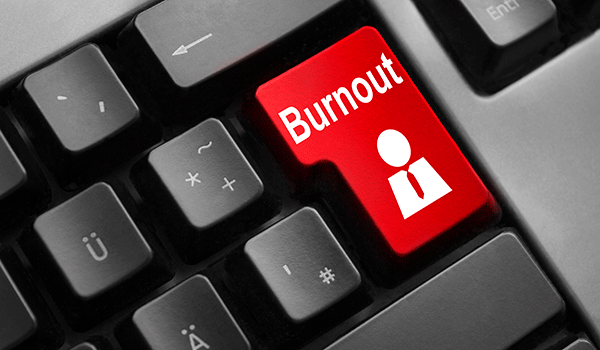
Employee burnout is easy to miss when you’re a manager and you’re trying to meet deadlines and be on task with projects. However, it is a well-documented fact that employee burnout-regardless of industry-is real and is something that managers and employers need to pay attention to.
In fact, in a recent survey by Gallup, 2 out of 3 employees reported feeling burned out at some point in their career. Out of the 7500 full-time employees surveyed, 23% said they felt burned out all the time or very often. These numbers are alarming because there are hidden costs associated with burned out employees. Additionally, there has been a history of workplace violence related to burnout.
Thankfully, there are ways employers and managers can detect burned out employees and there are ways to prevent it from becoming a hallmark of your organization.
Signs Your Employees Are Experiencing Burnout
Formerly motivated employees who are now irritable.
Have you noticed any of your employees coming into work looking more irritable than they usually are? Do they have a shorter fuse than they used to? How about their body language? If their brows are furrowed and they have pursed lips that turn downwards during meetings, this could point to an employee who is irritable. Of course, all of this should be judged through the lens of what the employee was like before this. If they were typically easy to work with but are now constantly irritable, there is a cause for concern.
Depression.
The same idea applies here as the point above. A usually happy employee who is now coming in looking sad and with low energy could be a sign of burnout.
Late projects.
Is an employee turning in their projects uncharacteristically late? One time might be acceptable. But if it happens more than two times, you might have an employee who is experiencing burnout.
Increased mistakes/accidents
Burned out employees may make more mistakes and experience more on-the-job accidents even though they know safety protocols that have been implemented.
Decrease in their quality of work
Can you tell that your employee’s work is decreasing in quality? This may be another cue to burnout.
Complaints of exhaustion
Exhaustion can manifest in many ways. Apart from being physically tired, exhaustion can show up as:
- Falling asleep at work, during meetings etc.
- Complaints of muscle pain
- Headache or stomach complaints
- Excessive yawning
Cynicism/Complaining
Is your employee more cynical than you remember? Do they complain more than they used to? These could also be a sign of burn out.
What can you do as an employer/manager to curb this problem?
First of all, it is important that you realize that you cannot completely flush out burnout from your organization. However you could implement measures that prevent a majority of people from getting there or measures that help your employees deal with burnout when they are faced with it. Here are some ideas of what you can do.
- Education-Educate your employees on what burnout looks like so they can diagnose it in themselves.
- Ownership-Once you have educated, employees can own the fact that they are burned out or getting there, and that they need help.
- Avenues for employees to communicate their stress-Employees should be able to talk to a manager or another person within the company about the difficulties they are experiencing at work. Some workplaces even have access to mental health programs that help individuals going through burnout. You don’t have to have a mental health program on-site but providing the tools that point employees to the right resources is helpful.
- Communication and clear expectations-One of the reasons people get burned out is because they feel overwhelmed with what is expected of them at work. Proper communication about expectations is a great way to reduce the possibility of burnout.
- Review and find out if they find their work stimulating enough-Over time, it is possible for employees to lose enthusiasm for their work. This can lead to burnout as well. If a previously excited employee is no longer showing enthusiasm, you might want to have a sit down conversation with them where you explore these types of sentiments.
Avoiding Employee Burnout
Employee burnout can cost your company thousands of dollars in revenue each year. As an employer or manager, it is important to pay attention to this issue if you want to have employees who are willing to come to work each day and be productive.

